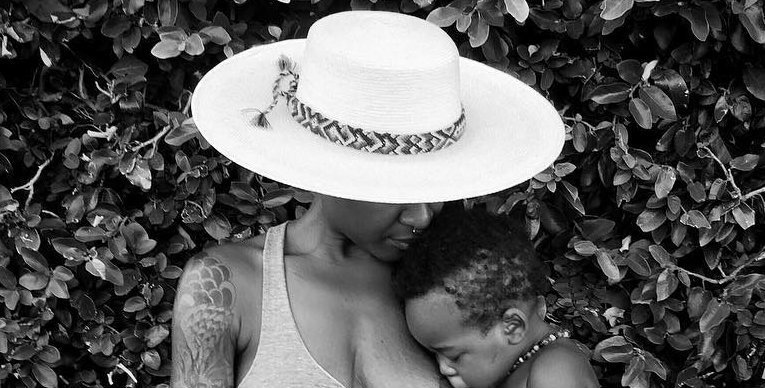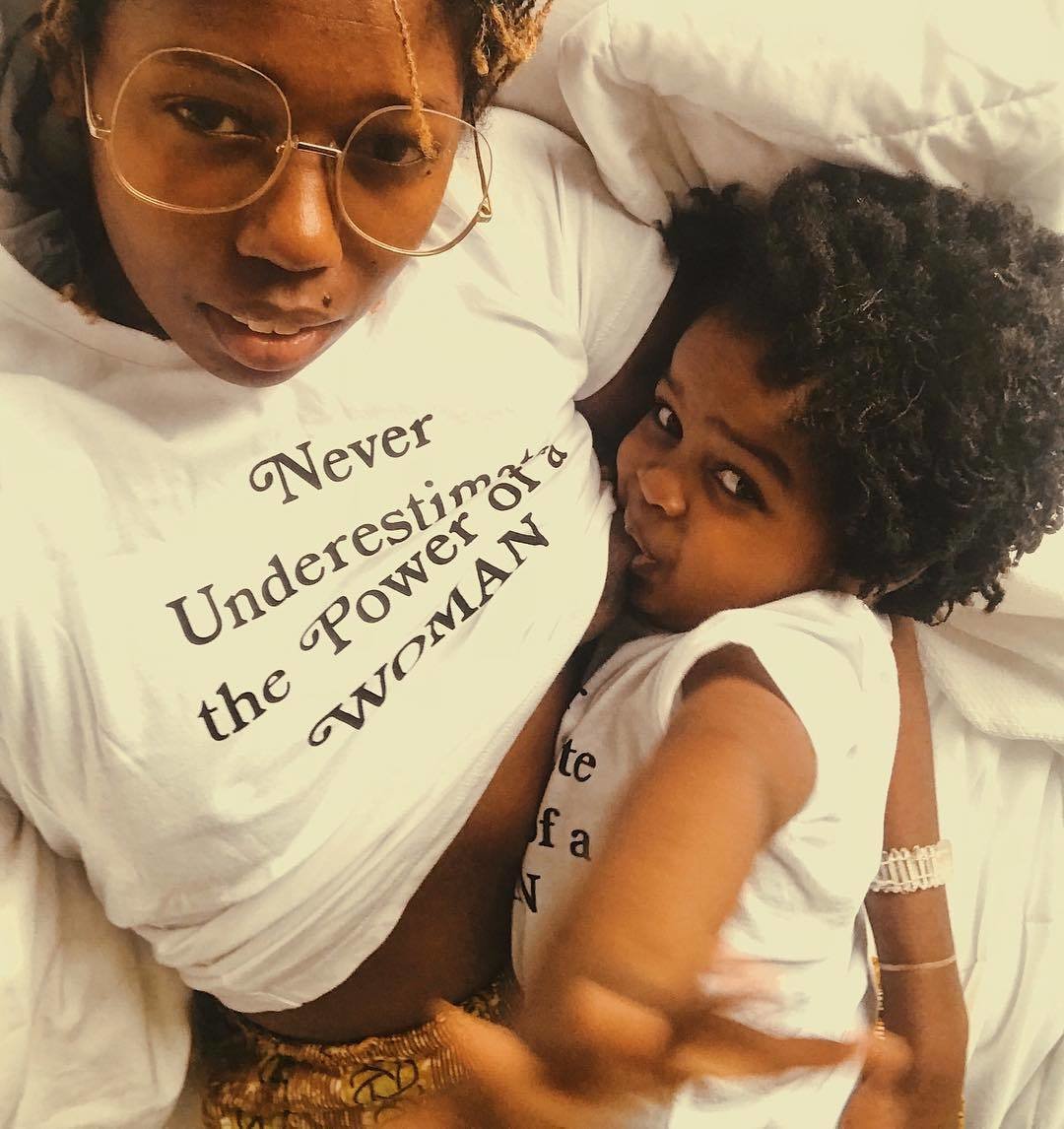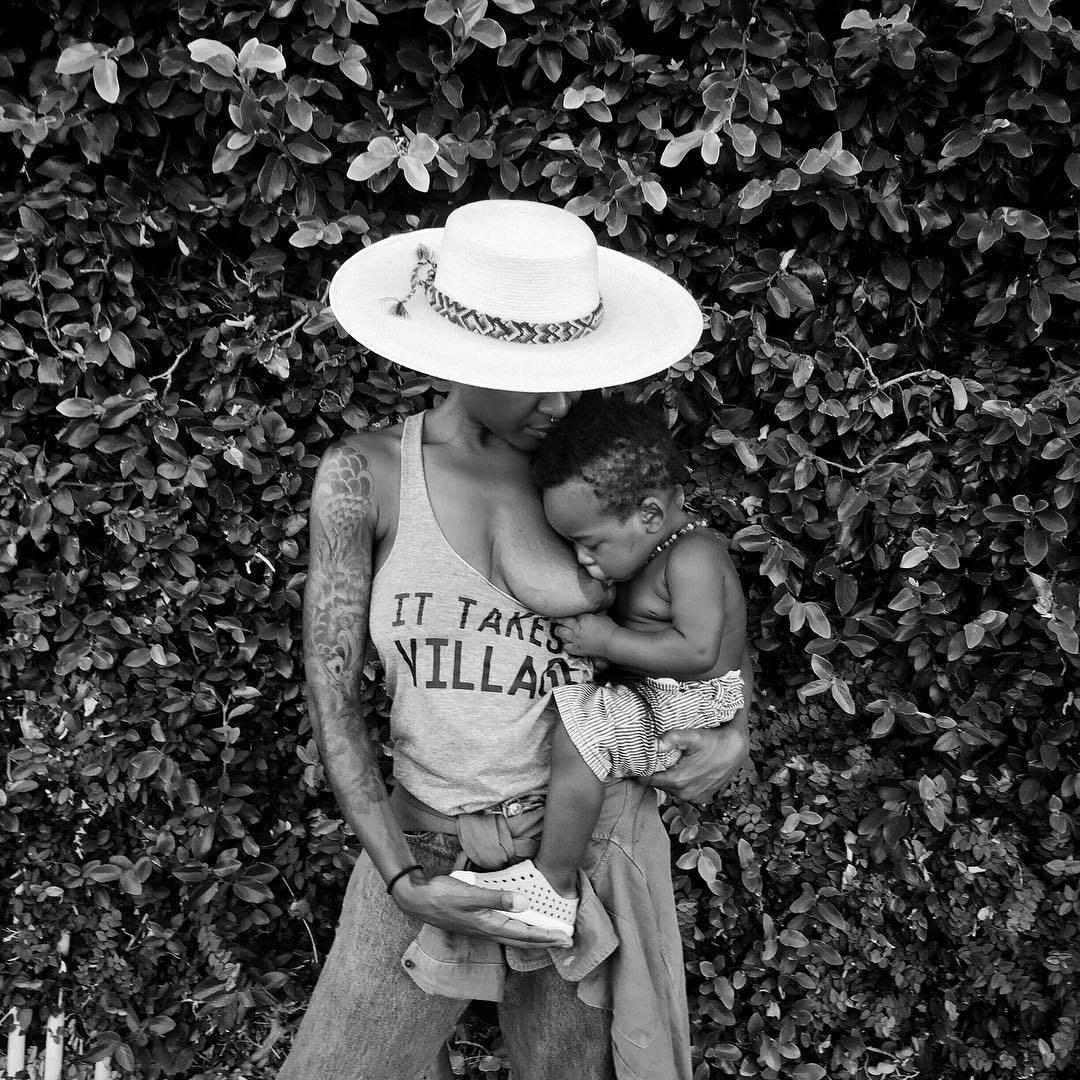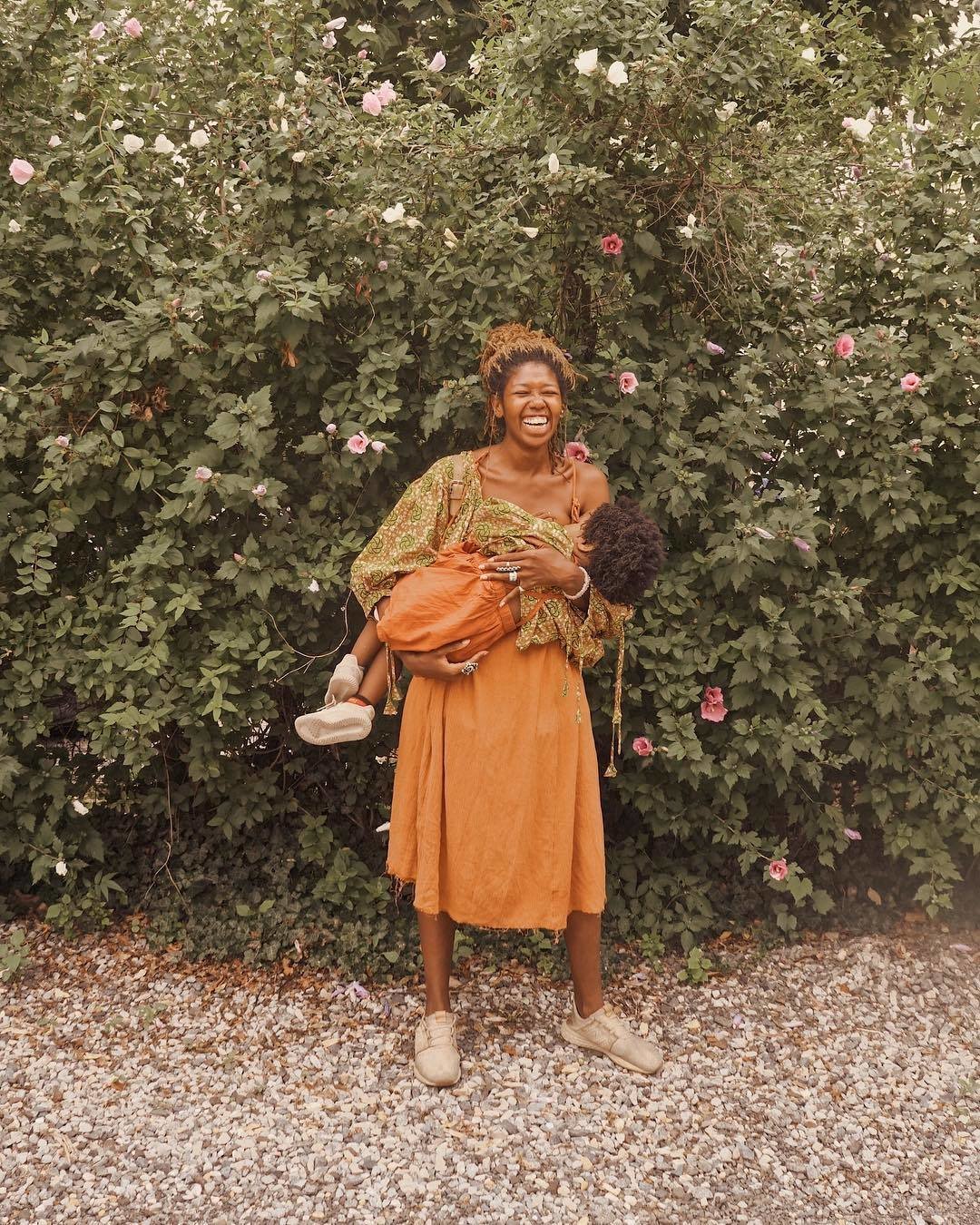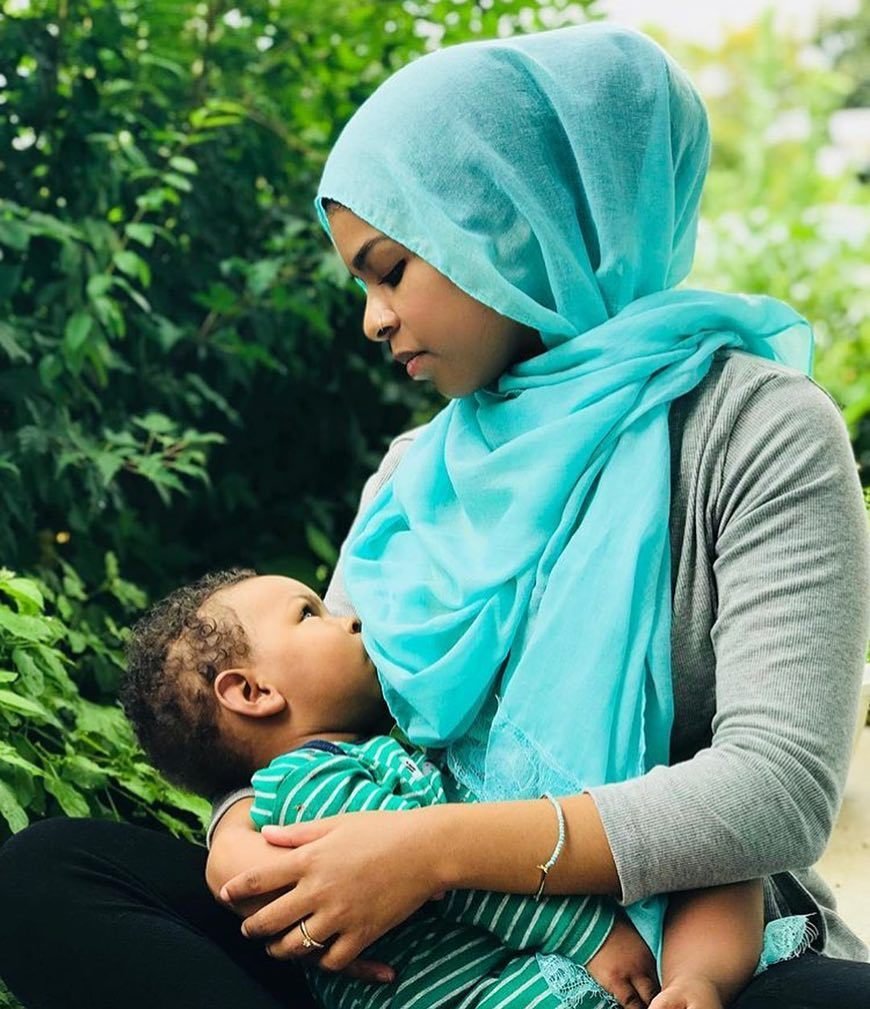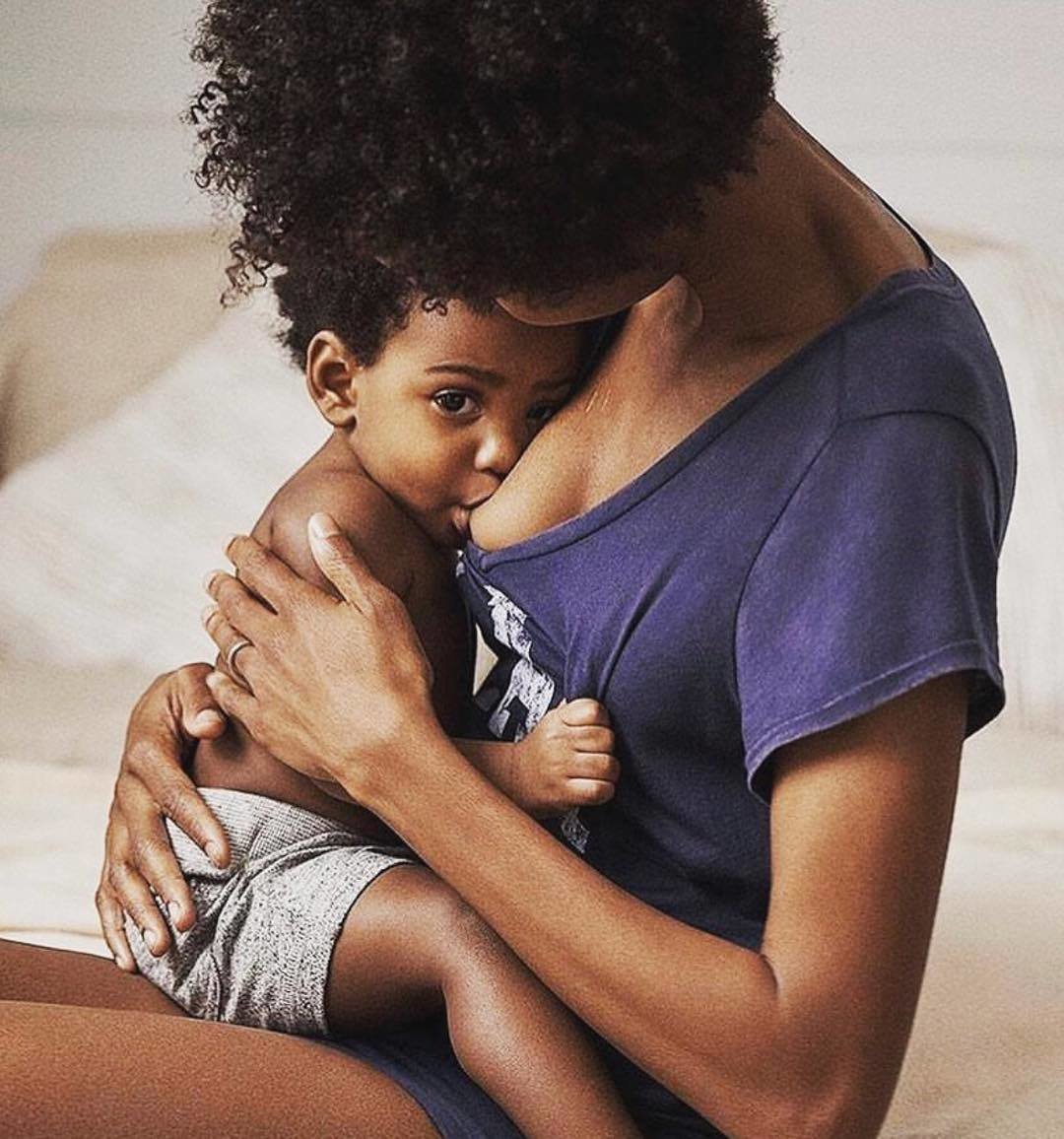Truthfully, there’s no easy answer as to why black women are less likely to breastfed — like most things in life, it’s several contributing factors. For one, black women have the unique challenge of grappling with a culturally complex history concerning breastfeeding. Many women served as wet nurses to white slave-owning families and did so to the detriment of their own children. There is also a serious lack of representation and miseducation in the lactation field. “Feeding my two year old I get to see her in her quiet moments and really look at her. She’s taught me that I can be wild and free. I can stand my ground and cuddle sweetly. I’m never to small to ask for what I want and never to inexperienced to demand what I like.” " I breastfed my oldest, Jax, for 5 days. After 5 days, I stopped. I stopped because of a lack of support. The hospital lactation consultant was quicker to show me how to dry up my milk than to show me how to continue. Looking back, I can recognize exactly what was happening. She took one look at me, a 24-year-old black mother, and immediately determined statistically that I wasn’t worth her time or support. Couple that with the fact that neither my mother or anyone in my family had breastfed long enough, if at all, to be of support. It was 2006, there was no such thing as Instagram or even an iPhone to see beautiful photos or communities of mamas that looked like me breastfeeding their babes. The cards were stacked against the possibility of me breastfeeding, and I could feel it.
